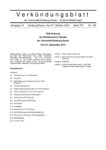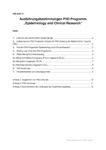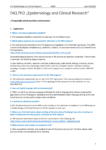
PhD
PhD-Program
The PhD program „Epidemiology and Clinical Research“ is a three-year, structured and internationally oriented doctoral program. Within the University Alliance Ruhr, the Institute of Medical Informatics, Biometry and Epidemiology (IMIBE) of the University Medicine Essen, the Department of Mathematical Statistics and Biometric Applications of the Technical University Dortmund, the Department of Medical Informatics, Biometry and Epidemiology and the Institute of Prevention and Occupational Medicine of the German Social Accident Insurance of the Ruhr-University Bochum are involved in the PhD program.

Goals
The program is designed to enable doctoral candidates to independently plan, conduct, analyze and publish studies on epidemiological and clinical issues (early detection, diagnosis, therapy and prognosis), taking into account Good Epidemiological Practice (GEP) and Good Clinical Practice (GCP). With the dissertation, the doctoral candidates prove that they achieve results through independent scientific work that serve the further development of the epidemiological field and clinical medicine.
Contents
The three-year doctoral program includes the integration into an own research project and an accompanying program designed for two years, which comprises a total of at least 300 teaching units (LE) of 45 minutes each. 263 units are compulsory and selectable modules. 37 LE can be freely chosen and are used to form focus competencies in epidemiology. The courses are offered as block courses in module form as 3-day or weekly courses. This means that the different knowledge, skills and abilities enabling the dissertation are acquired in complementary courses that build on each other. In 2 weeks per semester in each of the 1st and 2nd years of study, courses are held at the IMIBE/University Hospital in Essen. During the doctoral studies, presence at the IMIBE/University Hospital in Essen is only required for the courses and the 3-day RUHR School.
Among others, the following mandatory modules are part of the PhD program:
- Epidemiology
- Biometry/Statistics
- Statistics program with SAS
- Medicine for non-physicians
At the Ruhr School, guest lecturers offer interesting topics in the fields of epidemiology and clinical research.
During the PhD program, the PhD students will be accompanied by two supervisors.
The third year of the PhD program is used to finalize the dissertation. Upon successful completion of the PhD program, the Medical Faculty of the University of Duisburg-Essen awards the academic degree „Doctor of Philosophy (PhD)“.
The teaching language is English.
For more information please visit: www.youtube.com
PhD- Students
Georg Lodde
Dr. med. Georg Lodde is a senior physician at the Department of Dermatology, University Hospital Essen. He studied medicine at the University of Münster from 2011 to 2017 and completed his doctorate in 2017. He became a specialist in dermatology in 2023 and was awarded the additional designation „Drug Tumour Therapy“ by the North Rhine Medical Association in 2024. He is a member of the Merkel cell carcinoma committee of the ADO (Arbeitsgemeinschaft Dermatologische Onkologie). One focus of his research is Merkel cell carcinoma (MCC). Georg Lodde is analysing the impact of locoregional treatment management of MCC before and in the era of immunotherapy. The aim of the study is to improve locoregional treatment of MCC patients.
Moritz F. Lodde
Is an orthopaedic trauma surgeon currently working at the University Hospital Münster. His clinical interests include general trauma and in particular pelvic and spinal injuries. He also works as an emergency physician. In his last year at university, he completed his medical doctorate after analyzing tissue samples from patients with endometriosis for various growth factors. As a resident (2018-2024), he started doing clinical research in the field of pelvic and spinal injuries. In 2019 he had the unique opportunity of a medical research fellowship funded by the AO Foundation at the AO Research Institute in Davos, Switzerland. There, he conducted several biomechanical studies in the field of pelvic ring fractures. One of these biomechanical studies was awarded with the Forschungspreis der Mainzer Trauma-Stiftung in 2022. In the following years he carried out several other clinical and biomechanical studies. After graduating in 2024, he became one of the principal investigators of the SELFIE project, funded by the DGUV (Deutsche Gesellschaft für Unfallversicherung) with more than €550,000. This multi-center study analyzes injuries, diagnostic and treatment protocols and possible reasons for the development of complications. The aim of the study is to further improve the treatment of severely injured patients.
Tobias Lerchner
Tobias Lerchner is a physician (MD) and postdoctoral researcher at the Department for Cardiology and Vascular Medicine at the West German Heart and Vascular Center Essen. He holds a Bachelor of Science (B.Sc.) in Biology obtained from the Heinrich-Heine-University in Düsseldorf (2014-2017) and studied medicine at the Charles University in Prague, Faculty of Medicine in Pilsen, Czech Republic (2018-2024). After finishing medical school, he started to work as physician in residency at the Department for Cardiology and Vascular Medicine at the West German Heart and Vascular Center Essen. In September 2024, he finished his doctoral studies (Dr. med.) in which he focused on clinical aspects of patients with aortic stenosis receiving magna cum laude distinction. Further, he successfully participated at the ‘Principles and Practice of Clinical Research’ course offered by Harvard T.H. Chan School of Public Health in 2024. His research project for the PhD program focuses on the epidemiology and clinical implications of diastolic dysfunction in patients with dilated cardiomyopathy (DCM). Classically characterized by severely reduced systolic function, DCM is the most common reason for heart failure in patients under 40 years of age and the most frequent disease leading to heart transplantation worldwide. Despite the high clinical significance, curative treatment options for patients with DCM are scarce. This project aims to unravel the yet unknown role of diastolic dysfunction in DCM with the ultimate goal to develop new and more targeted treatment approaches.
Schahin Salmanian
Schahin Salmanian is a physician (M.D.), graduated in 2024 from the University of Duisburg-Essen and is licensed in both Germany and the United States. He is currently working on his doctoral thesis (Dr. med.) at the Center for Translational Neuro- and Behavioral Sciences in Essen, where in collaboration with his lab team, he identified a major contributor to glutamate toxicity and neuronal death in spinal muscular atrophy, using both murine and induced pluripotent stem cell models. He has presented his award-winning research at national and international conferences.
Since 2022, he has been leading a large-scale study on chronic subdural hematoma at the Department of Neurosurgery, University Hospital Essen, where he serves as the official direct supervisor for three doctoral candidates. He is also part of a research group at Penn State College of Medicine, investigating oncologic pathologies of the nervous system, with several international presentations.
For his PhD project, he is analyzing outcomes of minimally invasive spine surgery at the Department of Neurosurgery and Brain Repair at the University of South Florida in Tampa, FL, USA, where he has been an active researcher since 2024. His work has resulted in numerous conference presentations and several publications in preparation.
Alan Hamy
Alan Hamy is a pediatrician and neonatologist as well as a certified emergency Doctor. He studied medicine at the University of Aleppo, Syria, and gained early international clinical experience working with Médecins Sans Frontières (Doctors Without Borders) in 2014–2015. He earned his Dr. med. degree with a thesis on bacterial urinary tract infections in pediatric and adolescent patients, focusing on cultural detection and the development of antimicrobial resistance over time.
In his current academic work, he is conducting multiple research projects in the field of neonatology. These include a study on proteomic biomarkers in preterm infants and their relationship to long-term neurological outcomes, as well as research on fecal elastase-1 (FE1) concentrations and treatment strategies for delayed meconium passage in preterm and small-for-gestational-age (SGA) term neonates. His PhD project investigates neonatal care practices and outcomes of extremely preterm infants in Germany between 2014 and 2023, with a particular focus on the threshold of viability. Through these studies, he aims to contribute to a deeper understanding of early-life risk factors and support the advancement of evidence-based care in neonatology.
Karen Annette Hornung
Dr. med. Karen Annette Hornung is a physician-scientist currently undergoing specialist training in cardiac surgery at the Department of Cardiac Surgery, University Hospital of Cologne.
She obtained her medical degree and first doctorate from the Georg-August University of Göttingen. With a strong background in intensive care, she is pursuing her PhD within an interdisciplinary team of the Institute for Biomedical Informatics, University of Cologne.
Her PhD research focuses on the prospective design and implementation of real-world evidence studies to explore the predictive potential of digital biomarkers for circulatory function. By bridging clinical practice, digital health, and computational modeling, her work aims to translate high-resolution patient data into valuable insights for precision therapeutic management. She is particularly interested in integrating predictive analytics and developing methods for real-time monitoring to contribute to AI-augmented clinical reasoning, thereby improving outcomes in high-risk surgical and critically ill populations.
Myriam Preuß
Dr. Myriam Preuß is a physician with a multidisciplinary academic background in Medicine, Global Health, and clinical research. She completed her Bachelor (2014) and Master (2018) of Science in Medicine at Maastricht University, where she was trained in a problem-based, patient-centred curriculum. Throughout the studies she has gained thorough academic and practical experiences. Spending the final year of the study at the department of plastic surgery has laid the foundation stone for the later following research and surgery. This was complemented by clinical internships in Switzerland, Ecuador, and Scotland, allowing her to gain first-hand experience in diverse healthcare systems.
Building on this foundation, she pursued a Master of Science in Global Health (2018) within a consortium consisting of Maastricht University (Netherlands), McMaster University (Canada), Manipal University (India), and the Instituto de Salud Global in Barcelona (Spain). At the latter, she wrote her master’s thesis with focus of environmental health. She also served as a student representative, facilitating communication between faculty and the international student body. In 2020 she obtained her doctoral degree at RWTH Aachen on three-dimensional measuring of arm volumes in patients with breast cancer-related lymphedema.
In parallel with her academic training, Myriam Preuß has gained substantial clinical experience in trauma surgery, hand surgery, and emergency medicine. She specialises as a trauma- and orthopaedic surgeon at the university hospital Essen since 2019 and serves as a certified emergency doctor (2023) in the metropolitan region of Essen and Duisburg. Her clinical rotations have included work at the BG Klinikum Duisburg (2024), at the intensive care unit and the emergency department, where she is regularly involved in the initial assessment and management of critically injured patients, including those arriving via the resuscitation room. Being involved in the treatment of injured cyclists has encouraged her to investigate the underlying causes and consequences of bicycle accidents in greater detail.
The decision to pursue a PhD focusing on bicycle accidents emerged as a logical and timely progression of her career. Combining her clinical insights from trauma care, the exposure to different healthcare systems and her research expertise enable a broad approach to a better understanding of bike accidents and consequent injuries. In light of the rising significance of sustainable urban mobility, her proposed research aligns not only with her personal and professional trajectory, but also with urgent global health and environmental topics. Through this, Dr. Preuß aims to contribute to the development of evidence-based strategies for injury prevention and a safer urban environment.
Tanja Meininger
Tanja Meininger studied Public Health at the University of Munich (M.Sc.) and economics at the University of Augsburg (B.Sc., Global Business Management). During her master’s studies, she worked in an interdisciplinary research team of economists and communication scientists at the University of Augsburg, conducting economic laboratory experiments on the topic of society’s resilience in times of crises. She later used this research as the foundation for her master’s thesis.
She is currently a research associate at the Institute for Medical Informatics, Biometry and Epidemiology (IMIBE) at the University Hospital of Essen where she is responsible for coordinating the follow-up phase of the Heinz Nixdorf Recall Study and Heinz Nixdorf Mehrgenerationenstudie. Tanja Meininger is pursuing her PhD on the significance of coronary artery calcification for cardiovascular risk and sudden cardiac death in the Heinz Nixdorf Recall Study – a project in collaboration with the Deutsche Herzstiftung (German Heart Foundation).
Deborah Canales-Romero
Deborah Canales-Romero received her bachelor’s degree in Psychology in 2008 at the University of Monterrey, in Mexico. She worked as a forensic psychologist for a number of years before deciding to make the leap into academia by pursuing a Master’s degree in Research Methods in Psychology, which she finished in 2016 at the University of Southampton (UK). Since then, she continued working in academia and published a paper along with her supervisor about the COVID-19 pandemic lockdowns and its effects on the well-being of German families.
Deborah’s current research focuses on sexual behavior, specifically, the impacts of different conceptualizations of Compulsive Sexual Behavior in the levels of stigma in different spheres of interaction, namely: social, health and legal sectors. Additional variables to be manipulated are gender and neurobiological explanations for compulsive sexual behavior. This is a DFG-funded, three-phase project carried out at the Institute for Forensic Psychiatry and Sex Research of the LVR-Uniklinikum Essen.
Gernot Pucher
Gernot Pucher holds a master’s degree in Geoinformatics from the University of Salzburg and a master’s degree in Data Science from the University of Dundee. He worked multiple years as a researcher and as team leader of a data science team of a software company in Vienna before joining the CARE (Clinical Research and Real-World Evidence) research group, which is associated with the Department of Hematology and the Institute of AI in medicine at the University Hospital Essen, as a research assistant. His main research interests are time series analysis and predictive modeling. The research project for the PhD program aims to utilize routinely collected electronic health records for optimizing antibiotic treatment of immunocompromised patients in the hospital setting.
Marielle Wirth
Marielle Wirth is an epidemiologist (M.Sc.) and registered dietitian (B.Sc. Dietetics). After working in the field of nutrition and health services research in qualitative research projects and a certification process for school catering (2018-2020), she worked as a project coordinator in an epidemiological observational study and supported a phase 3 clinical trial in clinical monitoring and safety management (2020-2022). She then conducted research in the fields of alcohol and cannabis addiction research (2022-2023). In her master’s thesis, she developed and validated a multivariable risk prediction model for hepatic steatosis in patients with HIV infection. Her research project for the PhD program focuses on health services use and potentially avoidable burden for children with chronic conditions in Germany in order to derive recommendations for a more efficient, needs-based and high-quality pediatric care. The project is to be performed in collaboration with the department of child health services research at the University Hospital, Medical Faculty of the Heinrich-Heine University Düsseldorf.
Rodrigo Gopar Nieto
Rodrigo Gopar finished his bachelor’s degree in medicine in 2015 at the National Autonomous University of Mexico. Then, he studied cardiology at the National Institute of Cardiology in Mexico City, where he earned his specialist’s degree in 2020. He focused his studies on cardiovascular emergencies and coronary care and earned a master’s degree with the study of long-term outcomes in patients with acute myocardial infarction treated in a highly populated metropolitan area in 2022. Since 2022 he has been working at the National Institute of Cardiology and has made research activities in acute heart failure, myocardial infarction treatment, point-of-care ultrasound and cardiac surgery, and has collaborated in more than 70 publications in indexed medical journals. His PhD project involves the recognition of long-term outcomes of patients with acute myocardial infarction and cardiogenic shock, as there is scarce information regarding this population. This project will be made in collaboration with the National Institute of Cardiology in Mexico City and the Canadian Vigour Center in Alberta, Canada, with the supervision of Dr. Thomas Behrens.
Katharina Meiszl
Katharina Meiszl studied Medical Informatics at the University of Applied Sciences and Arts in Dortmund. After finishing her studies with a master’s degree in 2023, she works as a research assistant at the Ruhr-University Bochum in the Department of Medical Informatics, Biometry and Epidemiology. Her research project for the PhD program is focused on the impact of event risk progression after an exposure on the risk increase, comparing various analysis methods.
Lars Dinkelbach
Lars Dinkelbach studied psychology, biostatistics, and medicine with the support of the German National Academic Foundation, graduating in 2020. During this period, he engaged in a range of scientific activities in the field of clinical neuroscience that resulted in several publications and led to the completion of his dissertation in 2021. Following his graduation, Lars commenced his clinical training in pediatrics and developed an interest in pediatric endocrinology. Since 2024, he has been supported by the University Medicine Essen Clinician Scientist Academy (UMEA), which allows him to dedicate 50% of his working time to research. Currently, he integrates his previous research interest with his clinical work and investigates the relationship between hormones and mental health in children and adolescents. In his PhD project, he plans to employ Mendelian randomization studies, a method of genetic epidemiology, to investigate the influence of the timing of puberty in girls and boys on the later development of mental illnesses.
Maria Krasnova
Maria Krasnova studied at the University of Konstanz from 2015 to 2021, graduating with a Master of Science in Psychology. After her studies, she gained practical experience in forensic psychology and criminology during a one-year internship in Zurich. Since September 2022, she has been working at the Institute of Forensic Psychiatry and Sex Research at the LVR University Hospitals, University of Duisburg-Essen. She is currently working on her dissertation on ‚The Implications of Neurodata and Artificial Intelligence (AI) in Risk Assessment‘, which is supervised by Prof. Dr. med Johannes Fuß and Prof. Dr. Christoph M. Friedrich. The project explores the integration of neurodata and AI into criminal risk assessment.The research focuses on the ethical, legal, and social implications of such technologies, exploring the attitudes and perceptions of the public, judges, and mental health professionals, as well as the concerns and expectations of law students and offenders.
Julia Schwichtenberg
Julia Schwichtenberg is a scientific assistant at the Institute for Medical Informatics, Biometry and Epidemiology (IMIBE) at the University Hospital of Essen. She graduated from the University of Duisburg-Essen within the educational sciences. Ms. Schwichtenberg is particularly interested in the association between education as an indicator of socioeconomic position (SEP) and the development of diseases. Accordingly, her dissertation project for the PhD program aims to contribute to the understanding of the association between SEP and coronary artery calcification in the Heinz Nixdorf Recall Study and the Heinz Nixdorf Multigenerational Study.
Ubai Alsharif
After qualifying as a dentist, Ubai pursued an additional qualifications in medicine and epidemiology in the Charité University of Medicine in Berlin. Afterwards he underwent his clinical training in Oral and Maxillofacial Surgery from 2018 – 2023 in Klinikum Dortmund, Dortmund, Germany. Ubai conducted several cohort studies examining risk factors for disease recurrence and survival in patients with oral cancer. In addition, he investigates several clinical questions using routinely gathered data from the German cancer registries.
Mohammed Dagher
Mohammed Dagher has a background as a pharmacist and holds a dual master’s degree in Public Health and European Public Health from the Hamburg University of Applied Sciences. He has worked as a pharmacovigilance manager in a clinical trial setting and is currently working for a CRO in pharmacoepidemiology. Simultaneously, he has joined the PhD program in Epidemiology and Clinical Research at Duisburg-Essen University. His research project focuses on the safety of hormonal contraceptive use in Germany among adolescents and young women, with a particular emphasis on women with type I diabetes. The primary safety endpoints are venous thromboembolism and other related diseases. To address the research questions, he utilizes data from German health insurance companies.
Justa Friebus-Kardash
Justa Friebus-Kardash completed her medical studies at the Charité-Universitätsmedizin in 2013. In 2013, she also defended her doctoral thesis on the following topic, “The role of stress and peptide hormones or chemerin and chemerin receptors in the tumor biology of colorectal cancer “. In December 2013, she started her clinical education at the Department of Nephrology at the University Hospital Essen. She qualified as a specialist in internal medicine in 2021 and as a specialist in nephrology in 2024. She currently works as a senior consultant in the dialysis department of the Department of Nephrology of the University Hospital Essen. In 2015, she received a scholarship from the ERA-EDTA (European Renal Association-European Dialysis and Transplantation Association) for the research project ‘The role of BAFF and neutralizing anti-BAFF antibody in systemic lupus erythematosus’ and worked in the context of Research Long-Term Fellowship Programme of the ERA-EDTA in the ‘Clinical Immunology’ laboratory, in the Department of Biomedicine of the University Hospital Basel. In June 2021 Justa Friebus-Kardash received the „venia legendi“ in Experimental Nephrology. Her previous research focused on clinical studies in renal transplant immunology and on basic science research on pathomechanism of autoimmune diseases and viral infections. Since becoming head of the dialysis department, she has expanded her research field and has addressed research questions dealing with chronic kidney disease and extracorporeal therapies. Her research project for the PhD program is an explorative analysis evaluating the relevance of functional single-nucleotide polymorphism in genes encoding G protein subunits for cardiovascular morbidity and mortality in patients with chronic end-stage kidney disease requiring dialysis. On the other hand, she investigates the relationship between anti-OxLDL antibodies and occurrence of cardiovascular diseases in dialysis patients.
Tanja Böhnke
Tanja Böhnke studied Biomathematics for her BSc at the Hochschule Koblenz, RheinAhrCampus. During this time, she developed a strong interest in Biometry and Epidemiology and thus decided to continue with a MSc in Epidemiology at the University of Bremen. Since 2018, she has been working as a biostatistician at ZEG Berlin – Center for Epidemiology and Health Research GmbH which is specialized in conducting post-authorization safety / efficacy studies using primary and secondary data collection methods. She is responsible for the planning and conduct of statistical analyses from the project start-up via statistical programming until reporting and publication of study results. In her PhD program, she is investigating potential drug interactions between hormonal contraceptives and psychotropic drugs. To explore this research question, she is using pooled data from 4 large, prospective, non-interventional cohort studies including more than 100,000 women from Europe and the United States.
Madeleine Josefine Karpinski
Madeleine Karpinski finished her apprenticeship in 2016 and worked as a biology lab assistant at Grunenthal Pharma GmbH & Co. KG until 2021. She finished her bachelor studies in Biomedicine in 2017 and her master studies in Biotechnology in 2021. Since 2022 she has been working as a PhD student at the Department of Nuclear Medicine at the University Hospital in Essen, Germany. The aim of her PhD project is the assessment of the prognostic value of PSMA-PET and PROMISE in prostate cancer patients for risk stratification according to overall survival. This project is a cooperation project with the cancer registry North-Rhine Westphalia in Bochum, Germany.
Rayan Hojeij
Rayan Hojeij, Lebanese nationality, graduated with a degree in Nursing Sciences from the University of Lebanon in 2015. She continued her studies by obtaining a Master’s degree in Epidemiology and Clinical Research at the University of Burgundy-France. She worked for three years as a research coordinator in the Department of Pediatrics and Adolescent Medicine at the American University of Beirut Medical Centre, where her research focused on premature infants and their neurological development in the first years of life. Additionally, she worked for 18 months as a clinical project manager at Vivalto Santé in France, where she was responsible for conducting research protocols in collaboration with physicians. Rayan is currently pursuing a PhD project investigating the use of decompressive craniectomy as a therapeutic approach to traumatic and non-traumatic pediatric brain injury, using data from the German hospital database.
Nader Hirmas
Nader Hirmas, Jordanian nationality, holds a Bachelor of Science in Biology and a Doctorate in Medicine (M.D.) from the American University of Beirut (2008-2015). After graduation, he worked in the field of cancer research, especially in pediatric oncology and nuclear medicine. In 2018, he received a scholarship from the German Academic Exchange Service (DAAD) to obtain his PhD in Medical Sciences (Dr. rer. Medic.) at the Department of Nuclear Medicine, University Hospital Essen, Germany, with focus on diagnosis and staging of liver and prostate tumors using molecular imaging (PSMA PET). The aim of his epidemiology PhD project is to evaluate the diagnostic accuracy of molecular imaging with the novel FAPI-46 PET tracer and its impact on staging and clinical management of patients with different cancer entities.
Robin Denz
Robin Denz is a scientific assistant at the Ruhr-University Bochum in the Department of Medical Informatics, Biometry and Epidemiology. Between 2014 and 2020, he graduated in Sociology (Bachelor of Arts) and Survey Methodology (Master of Arts) at the University of Duisburg-Essen. In his position as a scientist at Ruhr-University Bochum, he is involved in the design and statistical analysis of various medical studies. One of his research interests is the further development of data analysis methods in medical statistics. His PhD project focuses on the comparison of different methods for the calculation of confounder-adjusted survival curves and cumulative incidence functions.
Dr. Katharina Marie Steiner
Katharina Marie Steiner works as a physician in the department of psychiatry at LVR Klinikum Essen, Essen University. She studied medicine at Essen University Hospital and finished her doctoral thesis (MD) on Reelin signaling pathway and Alzheimer’s pathology in 2013 at the institute of neuropathology, Essen University Hospital. KMS started her clinical career in the department of neurology, Essen University Hospital in 2014 and completed her specialized training before she moved over to the psychiatric department. In October 2020 she received the UMEA clinician scientist grant (Universitätsmedizin Essen Clinician Scientist Academy), that will finance her release from clinical work in the half of the time during three years. Her research focus is on the overlap of both neurological and psychiatric scientific issues: her previous research projects addressed associative learning and motor learning in the context of cerebellar functioning and disease using stimulation techniques as transcranial direct current stimulation and MRI techniques as voxel based morphometry and lesion symptom mapping. In her PhD project she is going to analyze the effects of treatment expectation towards transcranial magnetic stimulation in patients with major depressive disorder. Research will be carried out in particular to investigate the neuronal networks underlying both depression and expectation and a possible cerebellar involvement in these networks.
Anne Lotz
Anne Lotz studied statistics at the TU Dortmund with a focus on Biometrics. Since 2005, she works in the competence center of epidemiology at the Institute of Prevention and Occupational Medicine of the German Social Accident Insurance (IPA), which is an Institute of the Ruhr University Bochum (https://ipa-dguv.de). Anne Lotz analyzed the association between workplace exposures and health effects in a variety of epidemiologic studies (ORCID https://orcid.org/0000-0002-8715-0743). Her recent research focuses on the analysis of left censored variables. Censored variables occur for example when measurement methods are not sensitive enough to quantify low-exposures correctly and one or more measurements can only be characterized as being less than a limit of detection. As exposure limits decrease and methods for exposure reduction improve these kinds of datasets might occur more frequently. In her first project in context of her PhD thesis Anne Lotz will look at possibilities to extend the method of Bland-Altman to censored variables.
Dr. Kristina Boss
Kristina Boss is a physician at the University Hospital Essen. She studied medicine at the University Duisburg-Essen from 2012 to 2018 and received her doctorate degree (Dr. med.) in 2019. Since 2019, she is a resident physician at the Department of Nephrology. Her clinical and scientific interests are acute kidney injury and extracorporeal procedures. Her PhD project is focused on epidemiologic characteristics of the detection and graduation of kidney diseases.
Nicola Hornung
Nicola Hornung hat in Essen Medizin studiert und absolviert derzeit ihre Facharztweiterbildung in der Abteilung für Anästhesiologie und Intensivmedizin der Universitätsklinik Düsseldorf. Während des Studiums hat sie das Krebs Follow Up der Heinz Nixdorf Recall Studie betreut und Studierendenkurse im Querschnittsbereich 1 „Medizinische Informatik, Biometrie und Epidemiologie“ unterrichtet. Im Rahmen ihrer ersten Dissertation befasste sie sich mit der Assoziation von Monoklonaler Gammopathie unklarer Signifikanz mit dem Auftreten von Prostatakarzinomen in der Heinz Nixdorf Recall Studie. In ihrem PhD-Projekt widmet sie sich mit einer Interaktionsanalyse der Frage, welche Rolle polygenetische Risikovarianten für den Zusammenhang zwischen Schlafstörungen und dem Auftreten von Koronarer Herzkrankheit spielen.
Dr. Julian Kleine-Borgmann
Julian Kleine-Borgmann is a clinician scientist and physician at the Department of Neurology at the University Medicine Essen. He completed his studies at the University Duisburg-Essen in 2015 and finalized his MD thesis in 2017, in which he investigated the impact of an experimental inflammatory response on central pain perception. Since 2020 he is supported by the UMEA Clinician Scientist Program. His research focusses on the interaction between cognition and pain processing and his PhD project will include meta-analytic approaches to investigate the effectiveness of placebo interventions in different conditions.
Benjamin Borchardt
Benjamin Borchardt hat von 2006 bis 2013 Humanmedizin an der Medizinischen Universität Wien studiert. Er erlangte den Doktor der gesamten Heilkunde (Dr. med. univ.) durch eine Diplomarbeit in Kooperation mit der Tobacco Dependence Research an der Queen Mary University of London. Im selben Jahr beendete er ebenfalls sein Psychologiestudium an der Universität Wien, das er mit einem Bachlor of Science abschloss. In den letzten sechs Jahren war er in verschiedenen klinischen Fachbereichen tätig und befindet sich gegenwärtig im letzten Jahr seiner Facharztweiterbildung zum Allgemeinmediziner. Zurzeit ist er als Arzt in Weiterbildung am Institut für Allgemeinmedizin der Universität Duisburg-Essen tätig.
In seinem Ph.D.-Projekt beschäftigt er sich weiter mit dem Forschungsschwerpunkt Nikotinabhängigkeit. Sowohl Prädiktoren für den Rückfall zum Rauchen nach einer erfolgreichen Entwöhnungstherapie als auch Prädiktoren für Lungenkrebs sollen untersucht werden.
Alejandro Cabello López
Alejandro Cabello López ist ein mexikanischer Arzt, der seinen Bachelor in Medical Surgeon an der UNAM (2009-2015) erhielt. Nach seinem Abschluss arbeitete Alejandro anderthalb Jahre als wissenschaftlicher Mitarbeiter in der Arbeitsgesundheits-Forschungseinheit des mexikanischen Instituts für soziale Sicherheit. 2016 erhielt Alejandro das Karolinska Institutet Global Master’s Scholarship und schrieb sich für das Masterprogramm Public Health Epidemiology ein. Seine Masterarbeit bewertete die Auswirkungen der beruflichen Exposition gegenüber organischen Lösungsmitteln und des Lärms auf das Hören. Nach seinem Abschluss am Karolinska Institutet begann Alejandro als Forscher in der oben genannten Forschungseinheit in Mexiko zu arbeiten, wo sich sein aktuelles Forschungsinteresse – und PhD-Thema – auf die Bewertung von Biomarkern für das Pleuramesotheliom-Screening in Asbest-exponierten Populationen konzentriert, ein Projekt, das seit 2015 mit der IPA Bochum zusammenarbeitet.
Dr. Philipp Jansen
Dr. Philipp Jansen, arbeitet als Facharzt für Haut- und Geschlechtskrankheiten an der Klinik für Dermatologie, Universitätsmedizin Essen. Nach dem Medizinstudium in Bonn und München hat er seine Promotion im Jahr 2015 abgeschlossen. Im Rahmen der Dissertation hat Dr. Jansen den Einfluss des Typ-I Interferonsystems auf die Wachstumskinetik von Melanomen in einem Mausmodell untersucht. Seit Juli 2020 beschäftigt er sich im Rahmen des UMEA Clinician Scientist Programms mit der histologischen und genetischen Charakterisierung von kutanen Tumoren. Zuletzt konnte er einen Start-up Grant für die Etablierung eines Mustererkennungsalgorithmus zur histologischen Gewebeanalyse einwerben. Im Rahmen seines PhD Projekts wird er die Ergebnisse seiner Forschungsarbeiten mit den klinischen Patientenverlaufsdaten in einer Datenbank zusammentragen und ein Prognosemodell für das Metastasierungsverhalten von Melanomen entwickeln.
Marianne Tokic
Marianne Tokic studied Biopsychology and cognitive Neuroscience at Maastricht University and the Ruhr-University Bochum. Since December 2019 she is working at the Department of Medical Informatics, Biometry and Epidemiology of the Ruhr-University Bochum. In her research she mainly focuses on the effects of the suspension of disease modifying therapies in the context of multiple sclerosis and pregnancy.
Nora Bruns
Nora Bruns studied Medicine at the University of Rostock and Charité Berlin until 2009 and began her clinical career in Pediatrics in the surroundings of Berlin. Since 2012, she is working in the Department of Pediatrics of the University Hospital Essen. In 2019 she became a specialist in Pediatrics. She is planning to subspecialize in Pediatric Intensive Care. In 2012, she finished her doctorate thesis about amplitude-integrated EEG in preterm infants. Since then, her main research interests have been neuromonitoring and neurocritical care in neonates and children. For her PhD Project she will focus on pediatric traumatic brain injury.
Maximilian Falk
Dr. med. Maximilian Falk is a physician at University Hospital Essen. He studied medicine at the University of Bonn from 2010 to 2016. Since 2017 he is conducting his Residency for internal medicine at the University Hospital of Essen. In 2018 he finished his doctor thesis (Dr. med.) about the influence of endogenous ligands on myocardial contractility after aortocoronary bypass surgery in Bonn. His research topic for the PhD is the development of a method for improved digitalization in the emergency room to improve patient care and evaluation of clinical datasets.
Ulrich Gehrmann
Ulrich Gehrmann graduated in Informatics at the University of Applied Sciences in Munich and worked as a software developer in the 1990s. Then he studied Statistics at the LMU Munich and received his diploma in 2003. From then on, he was employed as Biostatistician in the areas of pharmaceutical industry as well as health technology assessment. Since 2017 he works as a consultant in the Evidence Based Medicine department of the Medical Advisory Service of Social Health Insurance (MDS) in Essen. His tasks are biometrical advice in all assessments of new medical products as well as statistical programming, e.g. meta analyses. One of his research interests is the adequate assessment of treatment effects regardless of distribution presumptions (nonparametric statistics). In this regard, for the PhD he works on a generalization of the Number Needed to Treat (NNT) measurement to all kinds of scales and on an inclusion of the Minimal Important Difference (MID) within this generalized NNT.
Gerrit M. Große
Gerrit M. Große studied medicine at Hannover Medical School (MHH) and works in the Clinic of Neurology at MHH since January 2015. He obtained his Dr. med. degree in 2016 and is active in clinical research in the field of cerebrovascular diseases. The main focus of his work includes the improvement of etiological diagnostics and secondary prevention of ischemic stroke. Since 2019 he is supported by the Clinician Scientist Program PRACTIS, which is funded by the German Research Foundation. In accordance with his previous work his PhD project addresses issues concerning oral anticoagulation in patients who suffered stroke due to atrial fibrillation.
Mael Lever
Mael Lever graduated in medicine from the Ruhr-University Bochum in 2014 and earned his doctor’s degree in 2018. After working as a resident in the Neurosurgery Department of the Klinikum Dortmund, he joined the Department of Ophthalmology of the University Hospital Essen in 2016. Mael’s clinical and scientific focus is on uveal melanoma and its immunological properties and also works on artificial intelligence-aided diagnostic methods in ophthalmology. His PhD project is centred around epidemiologic characteristics of uveal melanoma and the personal, molecular and therapeutic factors affecting the patient’s Outcome.
Uta Teschler
Uta Teschler is physiotherapist specialized in paediatrics. She finished her professional education in 2008 at the Alfried Krupp Krankenhaus in Essen. Directly afterwards she started her Bachelor´s Programme for physiotherapists at the University of Applied Sciences and Arts in Hildesheim. After the successful completion of the studies she worked as an employee in pediatric physiotherapy practices and started to teach at a professional school for physiotherapy. In 2014 she commenced her master studies in Adult Education at the Distance and Independent Studies Center (DISC) at Technische Universität Kaiserslautern and finished this programme in 2016. Since 2017 she has been working in the Sozialpädiatrisches Zentrum (SPZ) at the University Hospital Essen. Her responsibilities are therapeutic follow up diagnostics including standardized test procedures in infants, children and teenagers, medical aid consultation and physiotherapeutic function tests for clinical multicentre studies.
Her research focuses on motor development in preterm infants. A standardized assessment – the General Movements Assessment – enables to identify children at risk of neurological developmental disorder. An early and specific treatment involving parents is performed and its effect on motor development evaluated.
Julien Merta
Julien Merta finished his studies with a master’s degree in public health at Bielefeld University in 2014. His master thesis focused on analysing evidence based public health and quality assurance strategies in health promotion and prevention projects. After working as a project manager in a healthcare consulting company Julien Merta joined the West German Proton Therapy Centre at the University Hospital Essen in 2016. Here he coordinates the reference radiotherapy and radiotherapy quality assurance programms in several pediatric oncology trials and registries as well as the Advisory Centre for Particle Therapy in Pediatric Oncology headed by Prof. Beate Timmermann. His research topics of interests are long-term follow-up care and patient reported outcomes in pediatric radiooncology. In his PhD project he analyses health related quality of life outcomes after proton beam therapy in patients with pediatric brain tumors.
Benjamin Kendzia
Benjamin Kendzia finished his diploma in statistics at the TU Dortmund University in 2007. His major research interests are exposure assessment science and occupational epidemiology. He is scientist at the Institute for Prevention and Occupational Medicine of the German Social Accident Insurance – Institute of the Ruhr University Bochum (IPA) (https://ipa-dguv.de). The main focus of Benjamin’s research activities is the estimating of occupational exposure to a variety of known and suspected carcinogens for epidemiologic studies (ORCID https://orcid.org/0000-0002-8662-795X). His research project for the PhD program includes the measurement-based quantification of welding fume exposure and its effects on the health of employees.
Stephan Koslitz
Stephan Koslitz studied chemistry at university of applied sciences Gelsenkirchen (Germany) and Sion (Switzerland) until 2006. He is working since 2007 at the competence center toxicology, working group human biomonitoring, at the Institute for Prevention and Occupational Medicine of the German Social Accident Insurance (IPA), which is an institute of the Ruhr University Bochum (Germany). As technical head of laboratory, his focus is on the development and establishment of analytical methods of toxicological concern. He is working on metabolites of polycyclic aromatic hydrocarbons (PAH), diisocyanates, solvents and volatile organic compounds additional on metals in blood and urine for exposure assessment at workplaces. In particular, for his PhD he assesses the internal body burden of workers, exposed to Benzo[a]pyrene, a carcinogenic PAH.
Norbert Nosal
Norbert Nosal studied Medicine at the Ruhr-Universität Bochum until 2007 and began his clinical career in Gynecology and Obstetrics at the University Hospital Essen, where he also worked on various clinical studies. After further work at the Hospital Essen-Werden, he has been working at the academic teaching hospital Elisabeth Hospital Essen since 2010. Since 2012 he is a Specialist in Gynecology and Obstetrics and in 2014 he finished his doctoral thesis with Prof. Dr. med. Hahn at Ruhr University Bochum at Clinical Research Center (ZKF) in Department of Molecular GI Oncology (MGO). Since 2014 he is a Senior Physician and since 2019 Deputy Chief Physician. His clinical focus is on the treatment of female urinary incontinence and pelvic floor surgery, minimally invasive surgery, gynecological oncology and clinical obstetrics. Research focuses on female urinary incontinence therapies and the optimization of minimally invasive operations, in particular fertility-preserving and fertility-reconstructive therapies.
Christine Schmitz
Christine Schmitz graduated in medicine from the University Hospital Hamburg-Eppendorf in 2011 and earned her doctor’s degree two years later. Since 2016 she is working in the Department of Hematology at the University Hospital of Essen. Here, she finished her training as specialist for internal medicine and hematology and oncology in 2018. In her research, she focuses on patient-reported outcomes after surviving hematological malignancies.
Rhim Shu
Rhim Shu (MD. MPH, Msc.), Cameroonian of nationality, successfully completed his medical degree as well as a specialization in Endocrinology at the Medical Institute of the Sumy State University in Ukraine (2006 – 2014). He later successfully obtained a Master Degree in Public Health at the University of Brussels, Belgium (2015 – 2016) focusing on retrospective cohort-analyses of associated pregnancy outcome risk factors of low birth weight and risky mode of delivery among Belgian women. Between 2016 – 2018, Dr. Rhim Shu obtained a Master Degree in Pharmaco- & Healtheconomics at the University of Applied Sciences – „Hochschule Fresenius“ in Idstein, Germany, wherein, predictive health state-transition cost-effectiveness modelling analyses of Type 2 Diabetes Mellitus management strategies were his main focus. Dr. Rhim Shu is currently a full-time scholarship awarded PhD researcher at the „Centre of Clinical Epidemiology – ZKE“ in affiliation to the „Institute of Medical Informatics, Biometrics and Epidemiology – IMIBE“ of the University of Duisburg-Essen (UDE), with research focussing on the influences of sex hormones on coronary and cardiovascular diseases, metabolic status and health outcomes of respondents of the Heinz Nixorf Recall (HNR) population based prospective cohort study in Germany, with Prof. Dr. rer. nat. K. H. Jöckel, PD Dr. med. S. Reger-Tan and Dr. rer. nat. Nils Lehmann as research Mentors.
Carolin Girschik
Carolin Girschik studied Nutritional Sciences at the Justus-Liebig-University of Gießen and Martin-Luther-University of Halle (Saale). Within her master thesis she has been doing research in the field of dendritic cell vaccination to be used in tumor therapy at the Institute of Medical Immunology. In 2017, she also obtained a Master’s degree in Public Health from the University of Chemnitz. Her second master thesis was conducted at the ErasmusAGE group of the Erasmus Medical Center in Rotterdam while studying the association between macronutrient intake and coronary heart disease. During her studies she did various internships, e. g. at the German Nutrition Society (DGE) and the German National Cohort (GNC).
Her current research line at the Center of Clinical Epidemiology (CCE) in Essen focuses on the association between endocrinological and cardiovascular diseases among participants of the Heinz Nixdorf Recall Study cohort.
Janine Gronewold
Janine Gronewold, born January 2nd 1987 in Ratingen, received her diploma in Psychology in 2010 at the University of Wuppertal. Her diploma thesis focused on psychophysiological responses to commercial products depending on advertisement and personality traits. In 2015 she earned her Dr. rer. nat. at the Faculty of Psychology of the Ruhr University Bochum under the mentorship of Prof. Hermann for her thesis „Prediction of incident stroke events in the population-based Heinz Nixdorf Recall study using subclinical atherosclerosis markers“. Since 2015 she works as post-doctoral scientist in the NeuroScienceLab at the Chair of Vascular Neurology, Dementia and Ageing Research, where she currently supervises a research group evaluating the role of vascular risk factors, medical treatment and subclinical atherosclerosis markers in stroke and cardiovascular disease development.
Sarah Knispel
Sarah Knispel finished her university degree in medicine in 2012. Then, she started her clinical education and finished her dissertation during the first year of her residency. Supported by the supervising tutor, the dissertation resulted in a publication and was awarded with the Klaus-Dieter-Schulz-Versorgungspreis 2013. Since oncology has always been the focus of her interest, her research activities since finishing her dissertation are concentrated on melanoma. Currently, she is involved as a subinvestigator in several clinical phase I-III studies on patients with melanoma. In cooperation with consultant doctor Lisa Zimmer, she launched a retrospective multicenter analysis of patients with high LDH addressing the question of sequential therapy of immunotherapy and targeted therapy in patients with high LDH as these patients belong to a cohort with an especially high medical need.
Her research project for the PhD program is an explorative analysis addressing the questionable interactions between stress and depression and the immune system in melanoma patients. The activation of the immune system by PD-1 blockade is the most progressive therapeutical option in the field of dermatooncology and influence of stress on outcome parameters is insufficiently analyzed. The project is to be performed in collaboration with the department of medical psychology Essen (Prof. Schedlowski).
Susanne Stolpe
Susanne Stolpe finished her diploma in Bioscientific Documentation at the Fachhochschule Hannover in 1990. Until 2014 she was then an employee at the Department of Medical Informatics, Biometry and Epidemiology at the Ruhr-University Bochum. During this time she also completed her Master’s degree in Public Health at the Heinrich-Heine University Düsseldorf, where she continued to work as a research assistant until 2015. Since then she is part of the staff at the Center of Clinical Epidemiology at the University of Duisburg-Essen.
Marjan Amiri
Marjan Amiri is a pharmacist by training. She finished her bachelor studies in Pharmaceutical Sciences in 2009 and her master studies in Pharmaceutical Medicine in 2015. She conducted an empirical project as her master thesis, in which she investigated the expectation and satisfaction of academic investigators from Western Europe, North America and Japan, when collaboration with pharmaceutical industries. She works since 2015 as a researcher and pharmacovigilance manager at the center of clinical studies at university hospital of Essen. Her research area is drug safety as well as analyzing the limitations, challenges and opportunities of non- interventional studies for the collection of real-life data and proposing methods which can be employed to increase their internal and external validity. She is currently involved in the statistical analysis of a number of non-interventional studies.
Katarzyna Burek
Katarzyna Wiktoria Burek is senior statistician at the Department of Epidemiology at the Institute for Prevention and Occupational Medicine (IPA) of the German Social Accident Insurance (DGUV), which is associated with the Ruhr University Bochum (Germany). She received her Diploma in Statistics from the TU Dortmund University (Germany) in 2010. Her research interests cover health related topics in occupational epidemiology including the application and development of statistical models. Much of her work is on the evaluation of disease biomarkers through data mining, advanced statistics, and performance evaluations. Her recent research focuses on the impact of shift work on circadian rhythms in humans. Specifically, for her PhD she assesses the influence of night work on the circadian profile of cortisol in female hospital staff.
Miriam Engel
Miriam Engel studied sociology at the University of Duisburg-Essen (Germany). As part of her master thesis in the Survey Methodology master’s programme, she conducted a meta-analysis of the willingness to participate in epidemiological and medical observational studies depending on the recruitment mechanism. Since 2015, Ms. Engel works at the Institute for Medical Informatics, Biometry and Epidemiology (IMIBE) at the University Hospital in Essen, where she initially developed a recruitment concept for the Heinz Nixdorf Recall MultiGenerationStudy and monitored the measures derived from it. Since 2016, she is the study coordinator of the 1000BRAINS Study. This Study investigates in cooperation with the Research Centre Jülich the process of normal brain aging in a group of 1000 participants of the Heinz Nixdorf Recall Study.
In her dissertation, Ms. Engel studies the longitudinal evaluation of depressive symptoms, also using data from the Heinz Nixdorf Recall Study.
Pietro Trocchi
Pietro Trocchi studied veterinary medicine in Bologna (Italy) and received his doctorate there. Since 2006 he has been working in Germany as a research associate and, in the context of this position, completed his supplementary studies in epidemiology at the BSPH of the Charité in Berlin with a Master of Science in Epidemiology (MSE) in 2009. His professional focus was the coordination and data analysis of very different projects, mainly in the field of cancer epidemiology. Since 2017 he has been working at the Institute for Medical Informatics, Biometry and Epidemiology (IMIBE) of the University Hospital Essen on a project within the funding program of the German Cancer Aid (Deutsche Krebshilfe) ‚Epidemiological Research with Cancer Registry Data‘. The title of the project is: „Breast cancer incidence and operation rates before, during and after implementation of the mammography screening program in Germany“. Furthermore, as part of the PhD program, he is conducting a study on the inpatient treatment of patients with ovarian cancer. In connection with the graduate program of the German Cancer Aid, he worked for three months as a guest researcher in the Cancer Registry of the German federal state of North Rhine-Westphalia with the aim of conducting a study on the incidence rates of ovarian cancer.
Katharina Wichert
Katharina Wichert finished her Master’s degree in Statistics at the TU Dortmund University (Germany) in 2016. Her master thesis focused on the statistical analysis of the role of genes in melatonin biosynthesis and signaling in the development of breast cancer since melatonin can act on many different pathways on cellular level which also includes oncostatic actions. It was carried out at the Institute for Prevention and Occupational Medicine of the German Social Accident Insurance (IPA), which is an institute of the Ruhr University Bochum (Germany). Since then, she works as a research assistant at the IPA and analyzes data from different epidemiological studies. In her projects regarding the PhD program, she analyzes health effects of shift work with regard to cancer development.
Application
The application consists of a two-stage procedure.
For the first stage of the application, you will need the documents mentioned in points 1-8.
For the second stage, we will send you the required templates for items 9-12.
The following documents must be submitted for an application to the PhD program:
1. cover letter indicating aptitude, motivation, and areas of scientific interest, as well as ideas for further career development.
2. curriculum vitae
3. officially certified proof that the applicant meets the admission requirements of the PhD regulations of the Medical Faculty of the University of Duisburg-Essen according to § 5.
4. certified copy of the certificate entitling the holder to pursue undergraduate studies
5. proof of proficiency in the English language
6. signed statement on the preliminary topic of the intended dissertation by the supervisors
7. indication of the intended field of doctoral studies and outline of the doctoral plan
8. two letters of recommendation with reference to previous academic achievements and aptitude for scientific work
9. application for admission to the PhD program
10. statement indicating whether the applicant has already unsuccessfully attempted a doctoral degree
11. statement in which the applicant declares that participation in the PhD program will not be achieved through commercial mediation of the supervisory relationship or other paid and unpaid assistance by third parties that is inadmissible under examination law and scientifically unjustifiable
12. declaration by the intended supervisor that he/she is willing to supervise the dissertation and to continue to supervise it even if he/she leaves, unless there are important reasons for not doing so
Only complete applications will be considered.
Electronic applications must consist of a single PDF file.
Application deadline: End of December of each year
Applicants from abroad must credibly explain in a short statement how participation in the PhD program will be achieved.
Applications are sent by mail to:
Institut für Medizinische Informatik, Biometrie und Epidemiologie (IMIBE)
Coordinator of the PhD program „Epidemiology and Clinical Research“
Hufelandstr. 55
D- 45147 Essen
or electronically to:
epicr@uk-essen.de
Scholarships
There are no scholarships available at this time.
Regulations for externally interested persons
Opening of the PHD program „Epidemiology Clinical Research“ in Essen for external participants.
Since the summer semester 2019, the modules of the PhD program „Epidemiology & Clinical Research“ are also open for externally interested participants.
Participation in the modules is subject to the following conditions:
| Non-University members | University members excluding members of the University of Duisburg-Essen | Students exclusive Ruhr Alliance students* | |
| 1 module week | 1.000 Euro | 500 Euro | 200 Euro |
The prices displayed are not binding. Please contact us by mail for binding information.
*Aimed at persons who are not in employment subject to social insurance contributions and / or persons who are currently completing their first degree or first professional qualification.
Please send registrations by e-mail to epicr@uk-essen.de up to one week before the start of the event. The number of external places is limited. A timely registration is recommended.

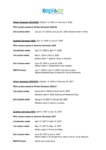
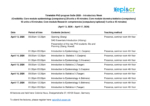
Timetable PhD program SuSe 2026 Introductory week
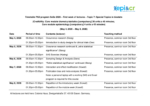
Timetable PhD program SuSe 2026 first week
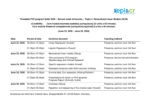
Timetable PhD program SuSe 2026 second week
Contact:
Arrival by public transport:
Coming from Essen main station, take line 108 to Bredeney or subway line U11 to Messe West-Süd/Gruga to the stop Rüttenscheider Stern. Then you can either change to line 101 in the direction of Helenenstraße, getting off at Zweigertstraße, or walk the short distance from Rüttenscheider Stern to the IMIBE. The IMIBE is located in the Colonia Haus on the third floor.
www.evag.de
www.vrr.de
Arrival by car:
From Münster: Take the A43 in the direction of Recklinghausen/Dülmen. At exit 16 Bochum-Riemke change to the B51 in the direction of Bochum-Riemke/Bochum-Hofstede/Herne-Zentrum. Keep to the right and follow the B51 in the direction of Hattingen/Bochum-Zentrum. Take the A40 in the direction of Essen-Zentrum until you reach exit 23 Essen-Zentrum. From there, drive in the direction of Essen Zentrum/B224. Keep to the left and drive onto Kruppstraße. At the next intersection, turn left into Bismarckstraße. After about 1.5 km turn right into Zweigertstraße. The Colonia Haus is on the left-hand side.
From Cologne: Take the A3 in the direction of Oberhausen as far as the Breitscheid junction. Change to the A52 in the direction of Essen and follow the highway to exit 28 Essen-Rüttenscheid. Follow Norbertstraße before turning left onto Alfredstraße. After about 800 m turn left into Zweigertstraße. Colonia Haus is on the left-hand side.
From Dortmund: Take the A40 in the direction of Essen/Bochum to exit 23 Essen-Zentrum. From there, drive in the direction of Essen Zentrum/B224. Keep to the left and drive onto Kruppstraße. At the next intersection, turn left into Bismarckstraße. After about 1.5 km turn right into Zweigertstraße. The Colonia Haus is on the left-hand side.
From Düsseldorf: Take the A44 in the direction of Velbert/Essen/Oberhausen/Flughafen Düsseldorf and change to the A52 in the direction of Essen/Oberhausen at the Düsseldorf Nord junction. Take exit 28 Essen-Rüttenscheid and follow Norbertstraße before turning left onto Alfredstraße. After about 800 m turn left into Zweigertstraße. Colonia Haus is located on the left-hand side.
Contact infomations
Director of the PhD program „Epidemiology and Clinical Research“
Univ.-Prof. Dr. med. Andreas Stang, MPH E-Mail: epicr@uk-essen.de
Coordinator of the PhD program „Epidemiology and Clinical Research“
E-Mail: epicr@uk-essen.de
Tel.: + 49 201/723-77-288
Address
Postal address
Institute of Medical Informatics, Biometry and Epidemiology (IMIBE)
Hufelandstraße 55
D-45147 Essen
Visitor address
Colonia Haus
Zweigertstr. 37
D-45130 Essen
Accommodation:
You can request a list of hotels by e-mail (epicr@uk-essen.de).

